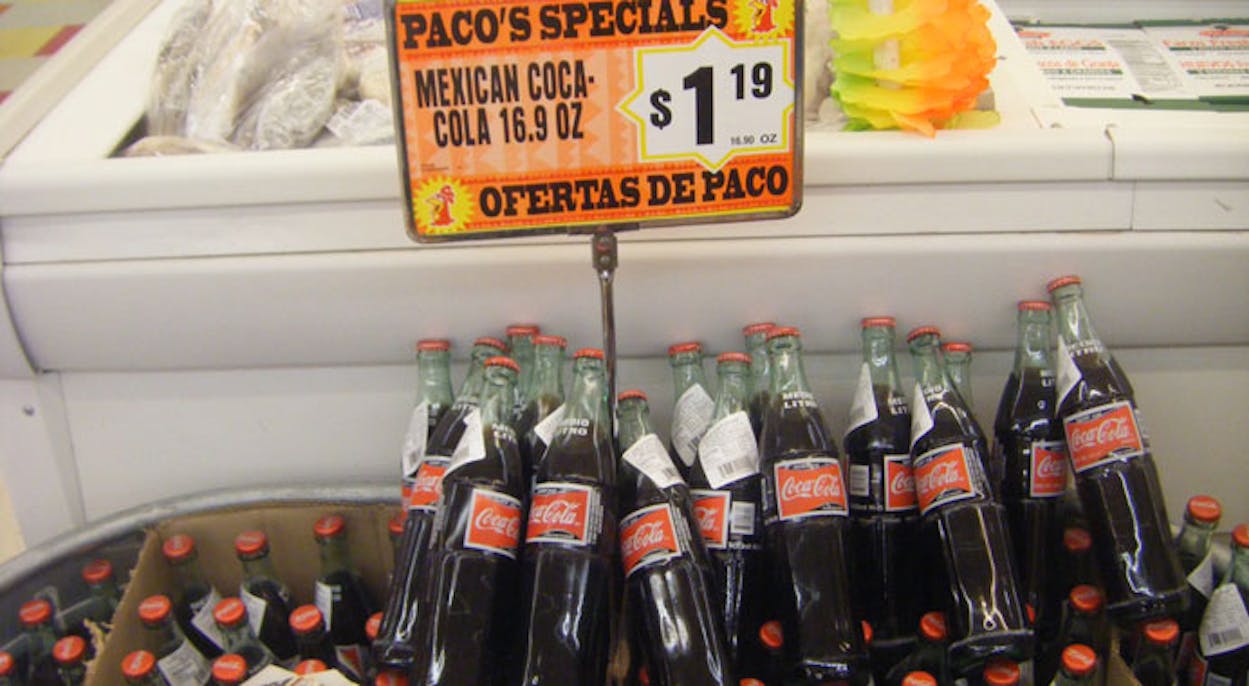
Y tú, Mexican Coke?
There’s a new peso-per-liter tax on soft drink sales in Mexico, which, as Matt Phillips and Roberto A. Ferdman of Quartz reported, has a seventy percent obesity rate, and, on a per capita basis, consumes “more Coca-Cola products than residents of any other country in the world.”
That could put the kibosh on “Mexican Coke,” which, like the late, lamented Dublin Dr Pepper, is prized for its use of real cane sugar, instead of high-fructose corn syrup.
As Phillips and Ferdman wrote:
On an earnings call with analysts last week, the head of Arca Continental SAB said that the Mexico-based Coca-Cola bottler could “move to more fructose,” which is cheaper than cane sugar.

Note, however, that the Arca head said “more fructose.” Truth is, the all-sugar Coke that Texans knew and loved from trips to the other side of the border has been giving way to corn syrup for years, something Texas Monthly noted in 2004.
One year later, in 2005 (h/t for link to Slate), Arca began producing an all-sugar, glass-bottled version explicitly for the United States, where, apparently, some fans insist on calling the stuff “Mexicoke.”
Which is why, as Amy Guthrie of the Wall Street Journal noted, the product’s not endangered in America.
“Fear not, soda snobs,” she wrote. “All those reports are wrong.
“Monterrey, Mexico-based Arca Continental, which bottles Coca-Cola in glass bottles for U.S. consumers as part of a nostalgia project that began in 2005, assures that its fizzy pop destined for the U.S. market will continue to be sweetened entirely with cane sugar.”
Which means “Mexican Coke” really is a lot like Dublin Dr Pepper: before the Dr Pepper Snapple Group bought out the family-owned, small-town bottler, most of the cane sugar soda the Dublin company actually produced came from a larger bottler in Bell County, which continues to make it for the corporate giant now. What used to be called Dublin Dr Pepper may have lost its soul, and Mexican Coke may not be all that Mexican. But neither soda’s actually going to die.
Still, as OC Weekly editor and “Ask a Mexican” columnist Gustavo Arellano noted, the new Mexican tax could have additional ramifications. “I’m more concerned about what it’ll do to Jarritos,” he wrote.







